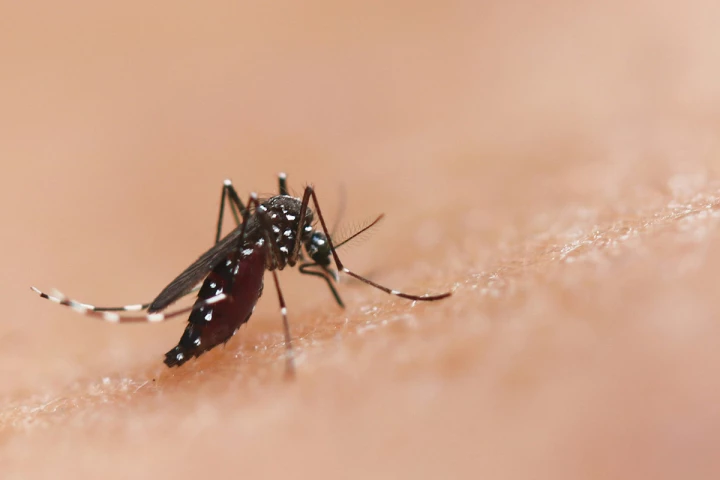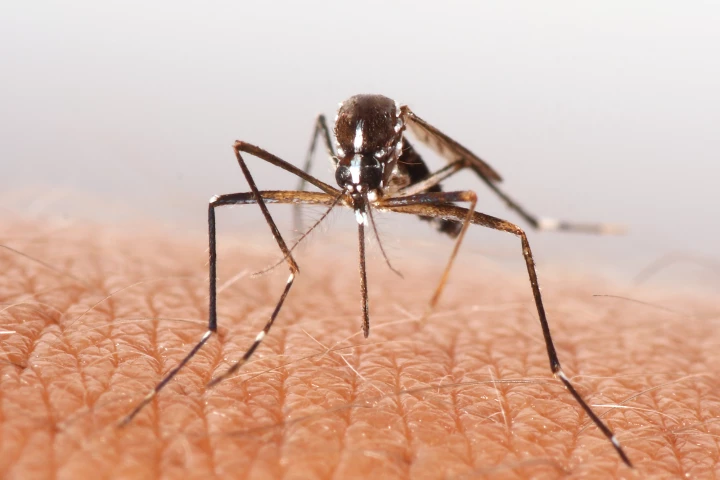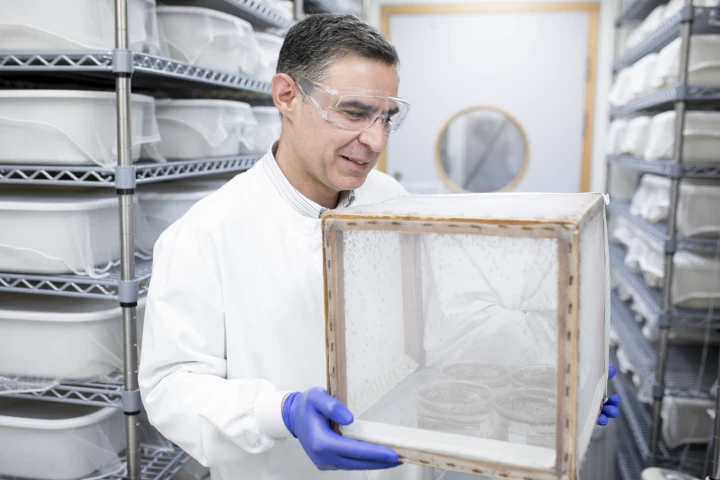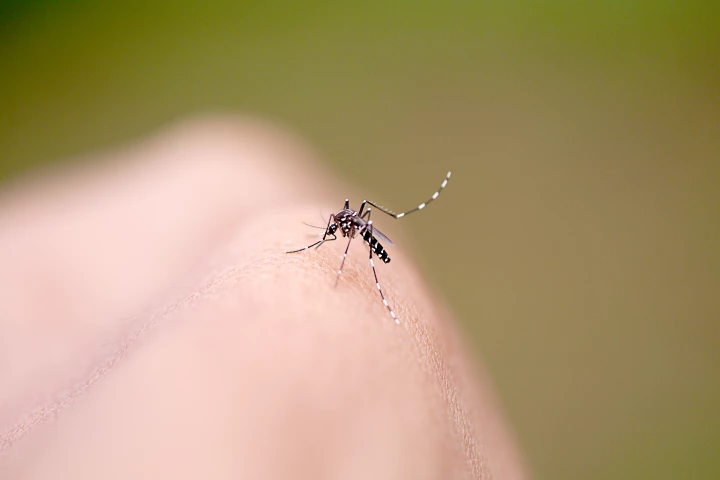Malaria
-
Mosquitoes have long been among humanity’s most formidable adversaries, causing more deaths than any other animal. With traditional control methods facing mounting resistance, researchers are seeking innovative ways to combat mosquito-borne disease.
-
Mosquitoes looking to mate in Australia are about to have the worst sex of their lives – thanks to genetic modifications turning their semen toxic. That could kill females swiftly, and greatly reduce their ability to spread deadly diseases.
-
Mosquitoes do a superb job of spreading diseases like malaria – now researchers have shown it's possible to hijack these pests and distribute vaccines via mosquito bite. In human trials, these mozzie-borne vaccines proved around 90% effective.
-
If you're trying to disperse 300,000 disease-fighting mosquitos per day, using a drone may well be your best bet for doing so. The technology has already been tested in Brazil, where it showed very promising results.
-
Researchers have chanced upon a bacteria naturally present in the gut of mosquitoes that inhibits the growth of a malaria-causing parasite. Unlikely to produce resistance, it could be used to complement existing malaria eradication strategies.
-
Researchers have found that inflammation leads to changes in the makeup of blood plasma that slow the growth of the parasites that cause malaria. They hope their discovery may one day be used to control or even prevent the disease.
-
Environmental modification has a flow-on effect on natural ecosystems, including the insects that carry disease. For the first time, researchers have shown how environmental change affects the transmission of insect-borne diseases.
-
For studies on insect-borne diseases, many a human has sacrificed an arm in a tank full of mosquitos. Now, a new artificial skin filled with real blood might spare humans the itchy bites, while providing a greater insight into mosquito behavior.
-
While it's very important to track malaria infections in at-risk populations, drawing and analyzing blood samples can be problematic. A new device is designed to help, as it uses light to detect the disease within a matter of seconds.
-
In the first big real-world test for monoclonal antibodies against malaria a new study has reported extraordinarily promising results, with a novel therapy found to be 88.2% effective at preventing infections across a six-month period.
-
When it comes to keeping mosquitoes from spreading malaria, some approaches involve killing the insects, or stopping them from acquiring malaria parasites. A new method, however, stunts the growth of the parasites once they're in the mosquito's gut.
-
Promising results from a Phase 1 human trial testing a novel monoclonal antibody treatment designed to prevent malaria infection reveal almost every volunteer resisted infection after being deliberately exposed to malaria.
Load More










